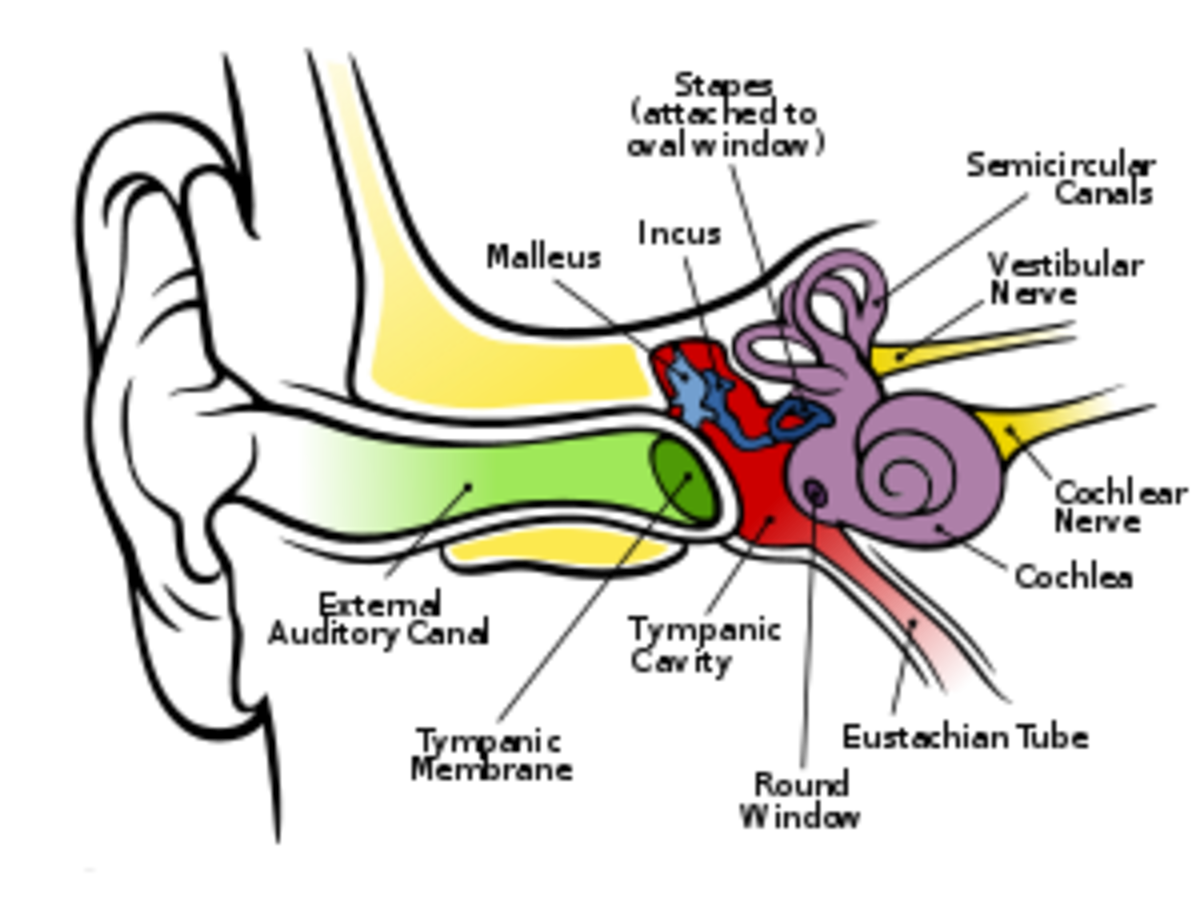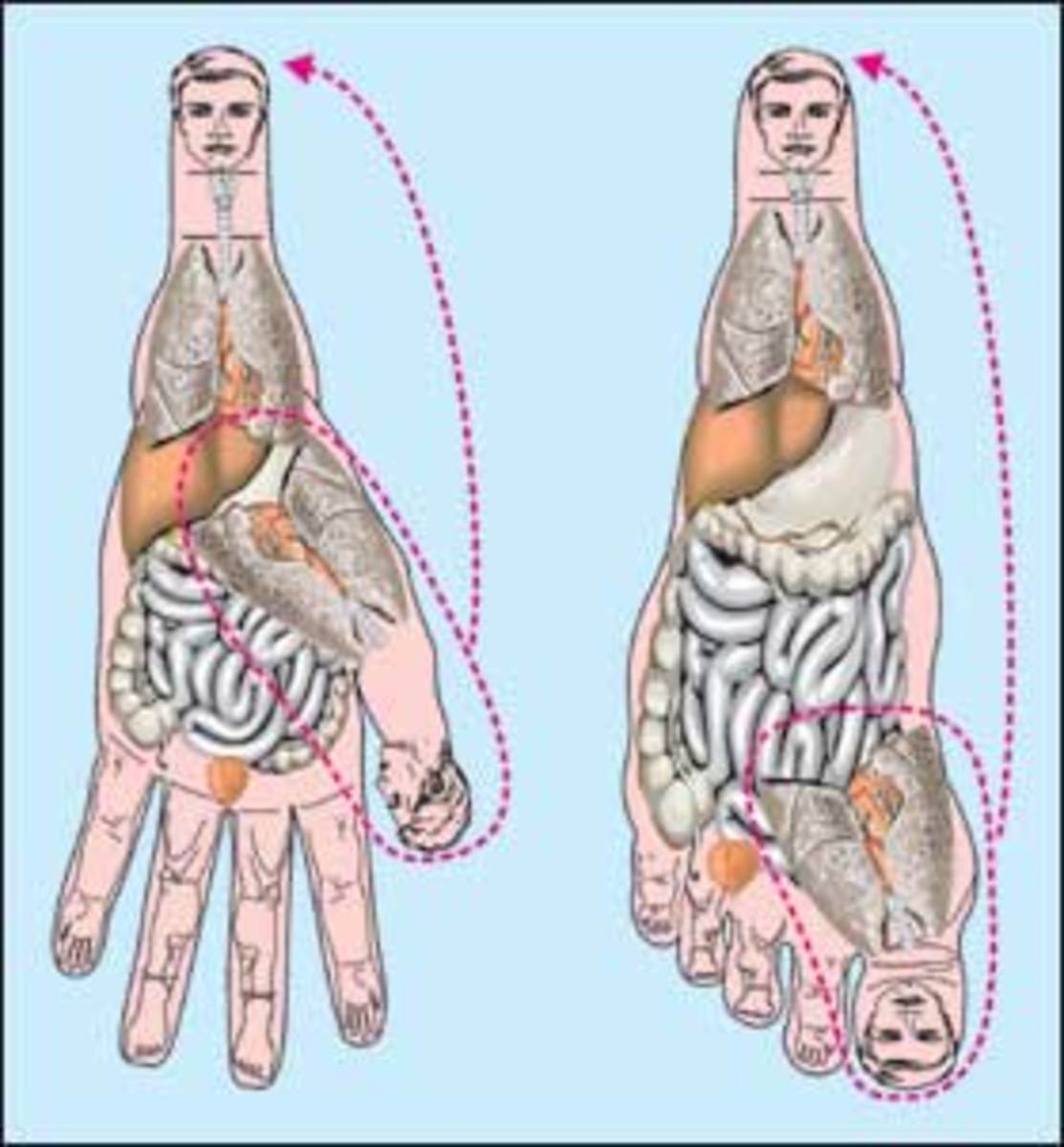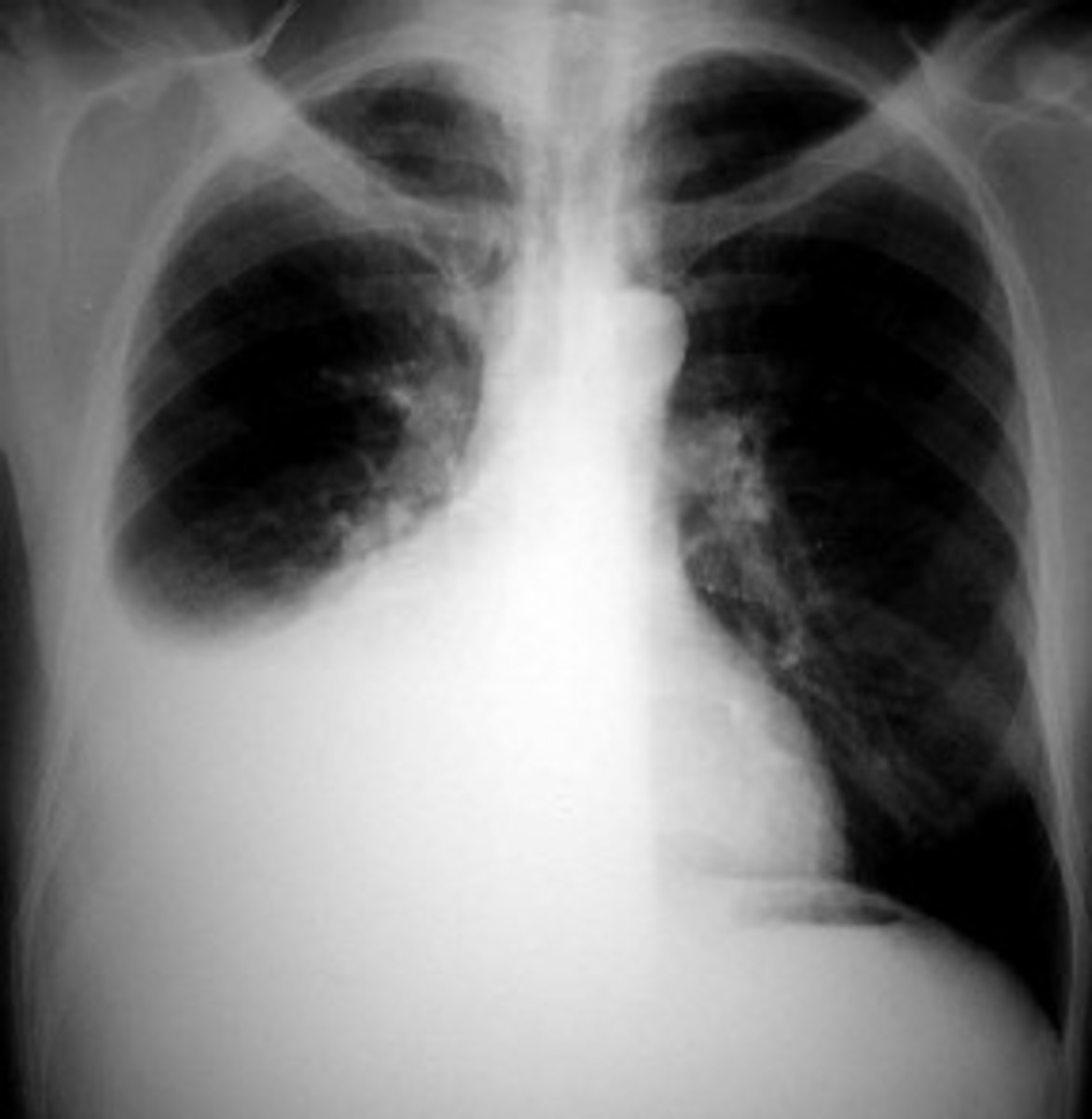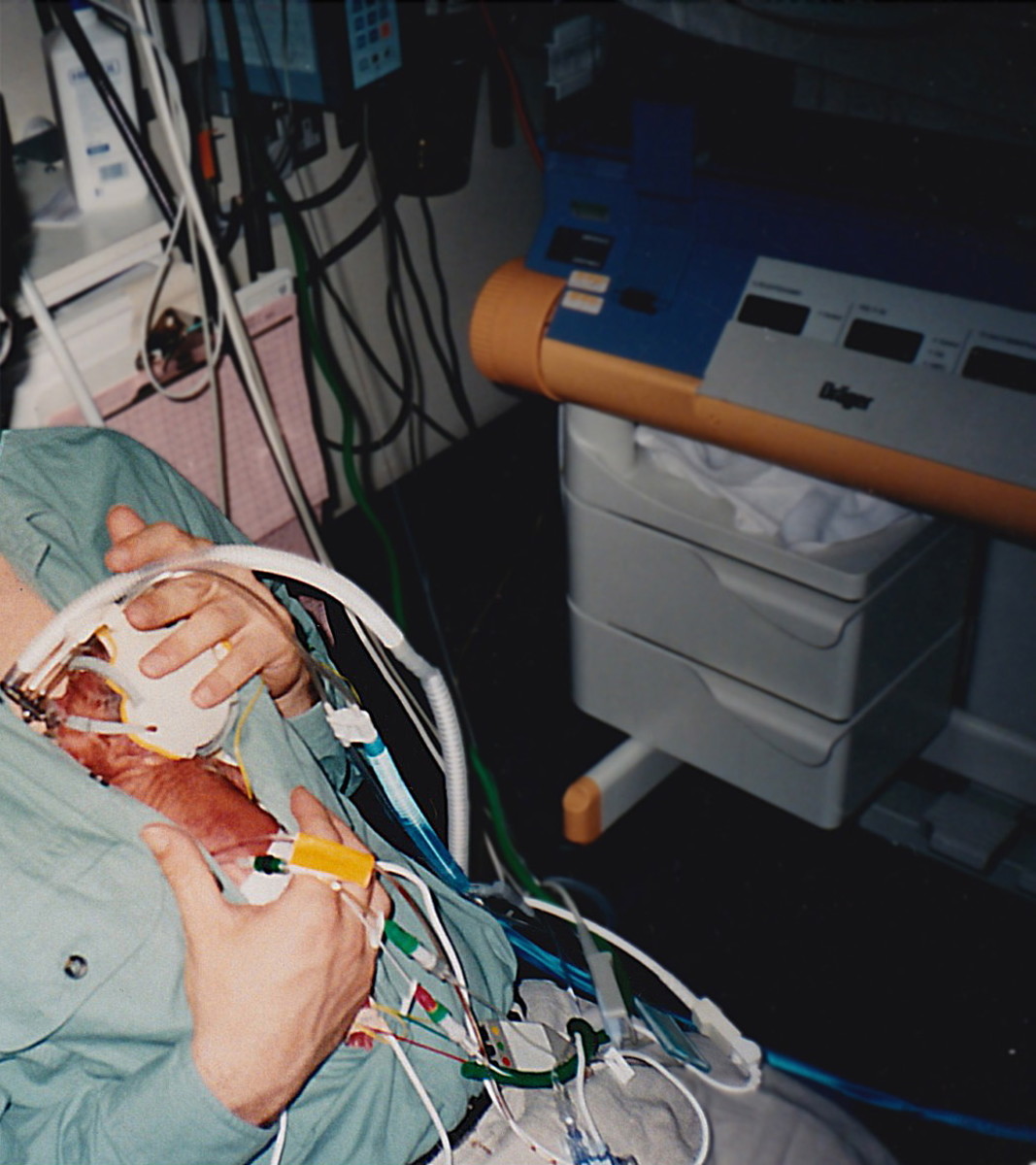How to start a successful natural health practice
My credentials ...
In 2000 I, along with three other female therapists, set up our own complementary therapy centre in a small, market town in North Yorkshire.
This hub is a guide to others who want to either do the same, or improve their present model, as it is a distillation of what works, in our experience. We have made the mistakes so you don't have to.
Whilst I obviously cannot guarantee that this model will work for everyone, I do hope it might give others some help in starting their own venture.
I work above a tanning salon ... why set up my own complementary health centre?
The answer to that is gravitas, basically. To us the reason for setting up a dedicated centre was obvious. At the time we were all working disparately and in less than optimal settings. Some of us were working in one room within our own homes whilst others were working in rooms over beauticians or hairdressing salons.
None of these locations inspired the confidence our therapies deserved or gave out the professional image we needed to cultivate. No old farmer with chronic sciatica was going to run the gauntlet of the intimidatingly glossy girls in a beauty parlour to get treatment.
So our first hurdle was to find suitable premises. It should also be yours.

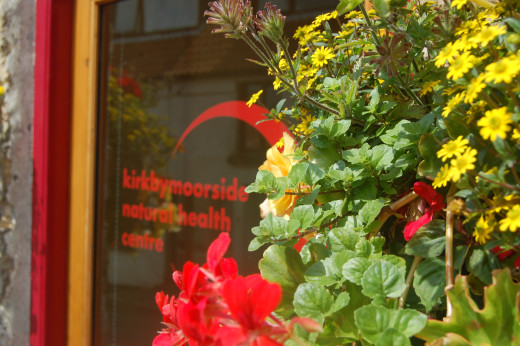
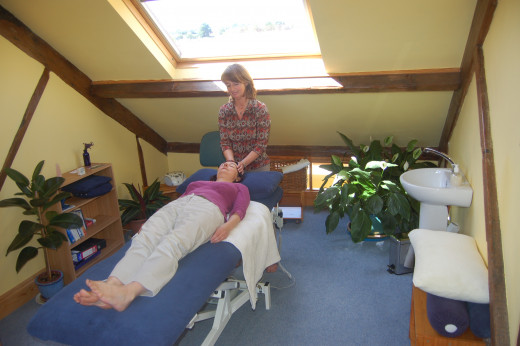
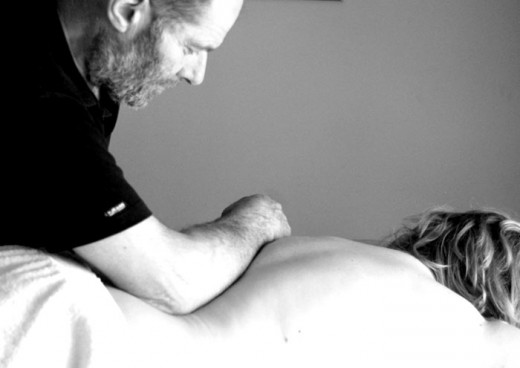
The importance of choosing the right premises.
We looked at quite a few options before finding a local entrepreneur who was converting an old chapel which he was willing to rent to us.
Even better, as he was only part way through the conversion we were able to ask him to amend the design a little and allow for a few modifications to fine tune its set up for therapy rooms rather than the offices he had originally intended.
This gave us what we found to be the ideal configuration of three therapy rooms, a small office with storeroom, a kitchen and a large room for reception.
And if you get the reception room right, and have people waiting for their treatment in a low-lit, peaceful room with relaxation music playing softly in the background, half your work is done by the time they get into the therapy room.
It may be that you will not be as fortunate as we were but it is important to try to get either a self-contained building or at least a suite of rooms with their own entrance.
The right location is a vital component for healing therapies.
One thing we felt was especially important was location. From the viewpoint of marketing ourselves, our Centre had to be as central as possible so that people knew we existed. But it still had to be in as quiet a position as possible to enable people having treatment to be able to relax instead of having traffic noise ringing in their ears.
Our especial luck was in the fact that not only was the chapel situated down a quiet side street but it was only a hundred metres down from the local doctors’ surgery.
This gave us the advantage of being a nearby alternative if patients felt either dissatisfied with their treatment from their doctor or worried about being prescribed yet more painkillers. Many of them called in at the Centre on their way home to see if we could help them in a more holistic way.
The importance of naming your centre correctly.
This may seem simple but we felt it was another important thing to get right as it needed to resonate with our target clientele. It was our first chance to attract people without them having to take that first hesitant step cross the threshold into the unknown and, in their eyes, weird.
For instance, had we called it Nirvana or some other such esoteric or spiritual name we would have immediately alienated ourselves from the community we were hoping to serve. This is not to say that such a name would not be entirely appropriate elsewhere, California, San Francisco etc. but not in a Yorkshire rural farming community that had only just stopped ducking witches.
I joke but you know where I'm going with this. (We were in fact regarded with the deepest suspicion when we first started and it took two years of solid good practice to break this down).
So, after much discussion, we decided to keep it simple and business-like, and called it a 'natural health centre' adding only the name of the market town in which we worked.
Finding an angle.
We never, in any of our literature, ever used the word 'alternative'. Alternative implies other, separateness, a breaking away from, and we felt it was divisive, even counter-productive, to appear to be in conflict with the established medical profession.
To gain wider acceptance we wanted to work to break down the barriers between the two disciplines and operate as an adjunct to what is now considered 'traditional' medicine, to become a supplementary help, to offer ‘complementary' therapies in the true meaning of the word.
Another important point here is to take particular care to always spell the word correctly as using the incorrect word, complimentary, could imply illiteracy which may well undermine confidence in the therapist. I am always amazed at how many therapists get this spelling wrong.
Ethos is important for a complementary health business.
Not only did we feel it was important to work towards 'combined' health care but we also wanted to stress the importance of the client taking responsibility for their own well-being.
We felt it was vital to encourage them look after themselves in such a way as to minimise the possibility of ill health. So, as a back-up to our therapies, we advised on future preventative health care and even sold a few well chosen and proven natural health aids.
It seemed strange to us that preventing ill health rather than having to deal with symptoms when they arose was considered radical, possibly even unrealistic, at the time.
In truth the concept of prevention rather than cure has only recently been promulgated by the traditional medical profession of this country and is still not the promoted as vigorously as it should be.
Is publicity worth paying for?
In our view, and on our tight start-up budget of only £5000, we decided it wasn't.
We produced our leaflets ourselves with a computer and printer. They weren't 'glossy' but they gave all the salient facts of what we did, what our philosophy was and where we were based and we left them everywhere, health food shops, cafes, outside notice boards in the surrounding villages and even in a little perspex holder outside the centre for those not brave enough to come in.
As we were also a sufficiently new concept we were able to sell the idea to the local radio who came and interviewed us and the media also obliged for free when we persuaded a retired and much-loved GP to officially open the Centre for us.
Be patient - good word of mouth reports are the best way of getting new clients.
Our lack of funds meant that we would have to wait for 'word of mouth' recommendations to build but we were sure that good therapy would produce good results.This did indeed prove to be the case and was far more valuable than any paid-for advertising.
In the early days however, until the word of mouth kicked in, we had to be pretty creative about how we got our publicity as it had to be totally free. The solution to this was to hold events which the local paper eagerly leapt upon and reported.
So we held 'taster' days of the therapies, sort of 'try before you buy' sessions which were very popular, we persuaded people to come into the Centre for yoga classes, drumming workshops, meditation practise, reiki mutual healing sessions and experiential talks about the therapies offered.
We even took our portable therapy couches to the local agricultural show and worked in a plastic gazebo, much to the bemusement of the agricultural fraternity. It was hard work but it all paid off and we had a lot of fun too.
Progression, not stagnation, is vital.
Having attracted a lot of attention it soon became evident that other therapists wanted to work with us at the Centre.
We welcomed this but we still tried to choose our fellow therapists carefully. Not only had they to be highly qualified but they also had to buy into our philosophy of mutual support. This meant that if a client did not seem to be benefiting from the treatment he/she was presently undergoing, they could be referred on to another therapist rather than keep paying for something that was not helping them in the hope that it eventually would.
Obviously our clients (we never called them patients as we felt that was somewhat presumptuous) also had the option of quitting therapy altogether but it was very rare that they did as the majority of the time we were able to clear or improve their presenting condition and they came to trust that we would do our best for them.
Such trust takes time and patience to earn and is invaluable to a therapist. Only occasionally did our vetting process let us down and we allowed a therapist to join us who was just a little too protectionist.
Fortunately for us they rarely stayed long and, a little whimsically, we put it down to the Centre taking care of itself and its reputation!
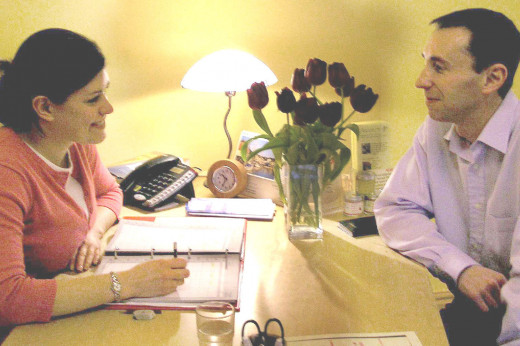
The benefits of a good receptionist.
Renting out our rooms to other therapists, either for a whole day or half a day, meant we could not only pay our rent and continue to improve the facilities we offered but we could also afford to pay for a full-time receptionist.
As many models of complementary health centres do not have a full-time receptionist we felt this was not only desirable but a necessity to put us ahead of any rivals that may appear, which they eventually did. After all, we did need to make a living as well as be of service to the community.
At first, my partners and I voluntarily undertook unpaid reception duties, and I believe it is to our credit and relatively spiritual outlook, both New Age and Buddhist, that we genuinely managed to advise potential clients impartially.
This had the effect of getting the best possible help for the client which in turn boosted the reputation of the Centre too so, under the general law of Karma, we didn't miss out too much personally either.
Eventually we could afford to pay someone with a suitable amount of knowledge and impartiality to take on the job full-time and the Centre not only survived but has flourished, and continues to flourish.
It is now in its eleventh year and shelters ten therapists, three leaders of exercise classes and one healing group.And all it has taken is commitment, hard work, self belief, vision and selflessness. Simple really.



